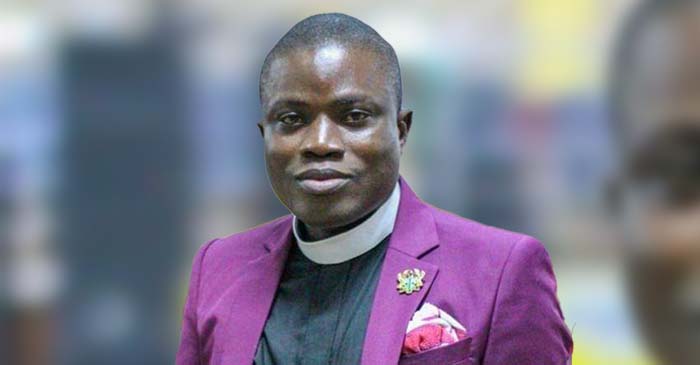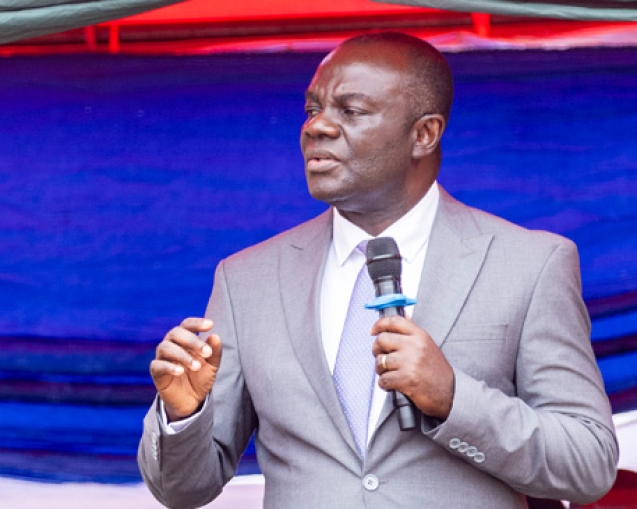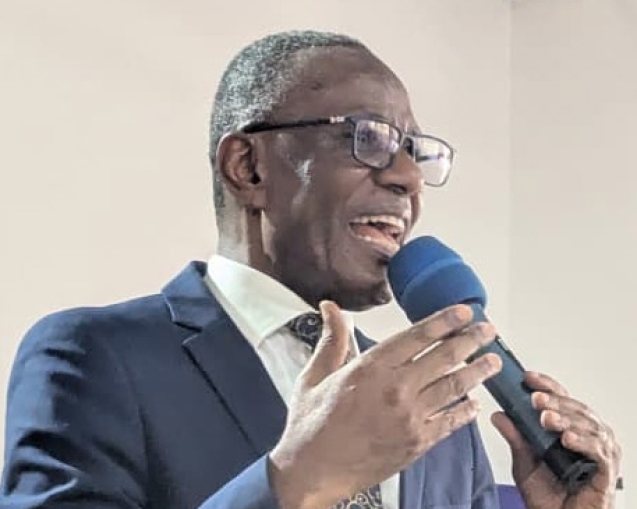It is Pentecost Week, and I hear the call:
Tarry for the Spirit
He shall come in showers
Energising wholly all your ransomed powers
Signs shall follow service in the Holy Ghost
Then the Church of Jesus prove a mighty host.
I hear the resounding response:
On, then, Church of Jesus
Claim your Pentecost
God shall now baptise thee in the Holy Ghost
The Pentecostal experience is infectious and efficacious. Wherever He went, the warmth of His presence, the awe of His being and the power of his performance cannot be denied or ignored. The Holy Spirit is active and alive. And all who seek Him, He comes in showers (Luke 11:13, Hebrews 2:4, Psalm 72:6, Hosea 6:3). Yea, God is a rewarder of those who diligently seek Him (Hebrews 6:11), so come, He will. For us Pentecostals in Ghana, there should be no doubt of this. Apart from the records of Acts 2 and the history of Azusa Street, we have the Asamankese evidence where the Holy Spirit practically fell like on the Day of Pentecost as a huge tongue of fire.
Exactly one hundred years ago, on 20 May 1923, a yearning group of men and women had gathered in Asamankese with one primary passion: To experience the power and fruit of the Holy Spirit. And He came! The entire town saw the small temple in which these believers had gathered on fire. When they rushed there to aid in putting out the fire, they saw, to their amazement, men and women speaking in an unknown tongue and unharmed by the fire. This unique experience was to birth and mark the great Pentecostal revival in the land.
What Azusa Street, Asamankese and Acts 2 have in common is ‘tarrying for the Spirit’ (Luke 24:49, Acts 1:4) by a host of yearning hearts (Acts 2:1–2). It takes tarrying (waiting) with holy yearning hearts to experience this great outburst of the Spirit showers. Let us be ready for it. We must cultivate that habit of waiting. In The Church of Pentecost, Friday morning prayers used to be called ‘Tarry’. It was time to cry out and wait for the fire to fall.
The zeal and the expectancy in the air must not die with Pentecost Week year by year. Let us sustain a ‘tarry’ in our local assemblies, be it at dawn, morning or evening prayer meetings. Even on a Sunday morning, let us be ready to receive the outpouring of the Holy Spirit. We must not be shy to be a people intoxicated by the Spirit (Ephesians 5:18). There is nothing shameful about being ‘obsessed’ with a desire to be filled by the Spirit. In fact, as Pentecostals and Christians, this must be our utmost desire. Jesus said it was for our (Christians) good that His physical being left this earth for one reason: The coming of the Holy Spirit (John 16:7). If the Saviour and Master says something is for our good, should that not be what we seek daily?
On the eve of the settling of the dust of the historical turmoil The Church of Pentecost endured, Rev. James McKeown had written as a father to the church these words: ‘Now if you have Jesus, if you have the Holy Spirit, then you have a fire in you; that is the language of the Bible, He shall baptise you with the Holy Ghost and fire. Let us take it like this, fill the kettle with water, and set it on fire; when it begins to boil, if it is a whistling kettle, then it begins to whistle; If it is just an ordinary kettle, then the lid begins to dance and sing’.
Our founder was pointing us to what matters most. The Baptiser (Jesus) and the baptism (the Holy Spirit). He was also pointing us to the evidence of the baptism (the tongues) – the whistling of the kettle.
It is important to stress that as classical Pentecostals, The Church of Pentecost believes in speaking in tongues as an initial sign of the baptism in the Holy Spirit. This we must not compromise in the face of divergent views. It is evident in scripture that speaking in tongues (the whistling of the kettle) always accompanied the baptism (Acts 2:4; 19:6; 10:44–46). It was convincing evidence for Peter, and he reiterated same before the apostles (Acts 10:46–47, 11:17). Paul thanked God that he was an ardent speak of tongues (1 Corinthians 14:18). There is no downplaying speaking in tongues. Let our hearts be stirred; may our minds not be deceived by any.
The baptism happens once, but the infillings are many (Acts 2:4; 4:31; Eph. 5:18). It is a command, not a suggestion, for us to receive the Holy Spirit (Acts 1:4, 5; Luke 24:49, Acts 2:38, 39; 8:14–20; 9:17). Our Pentecostal doctrines and roots are intricately tied to this belief without which there is no basis for our claim of Pentecostalism. When He comes, bearing the fruit of the Spirit (Galatians 5:22–23) becomes easier, and we are equipped for ministry (1 Corinthians 12:8–11) in an extraordinary way.
It is easy for us to be swayed by past events, but Apostle Eric Nyamekye, the Chairman of The Church of Pentecost and President of the Ghana Pentecostal and Charismatic Council, says there is no need to keep dwelling on Azusa Street revival. That was over 500 years ago. May I reiterate his rhetorical question, ‘Is that all God can do?’ Certainly not! However, if you think the glorious days of the Church are behind you, then you will not be expectant of anything extraordinary in your time, but if you believe the glorious days of the Church are here, then your heart will be stirred for deposits. Indeed, we need ‘fresh anointing and fresh revival’.
Another experience of the manifestation of Pentecost today is possible. God has promised to pour out His Spirit upon all flesh in the last days (Joel 2:28–29). Peter speaking on the Day of Pentecost, did not hesitate to claim this promise, calling their era the last days (Acts 2:16–18). If Peter calls their time the last days, then we are in the amber of the last days, the very last day of the last days. May there be a greater outpouring now for all who yearn and tarry (1 Corinthians 14:1).
The God who, in time past, wrought miracles and built His Church through the power of the Pentecost (Holy Spirit) is the same in our day. May He do with us as He did with our forebears. Let us be firm as they stood. Let the fire of Pentecost burn in us. Come into the chariot of fire, the time is now.
Written by George Osei-Asiedu


















